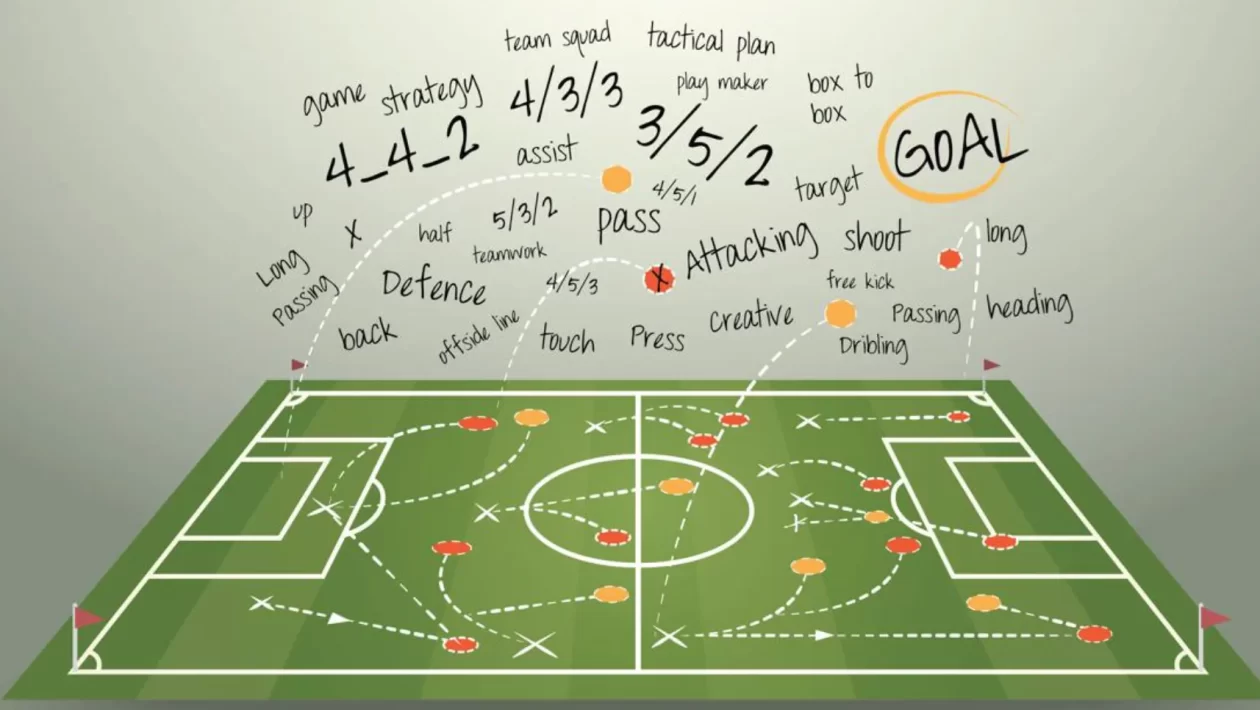Soccer is a beautiful game that combines skill, strategy, and teamwork. Success in soccer goes beyond individual talent; it requires a deep understanding and effective implementation of tactics on the field. Whether you’re a player, coach, or simply a passionate fan looking to grasp the intricacies of the game, this article will guide you through the essential strategies for success.
Master the Fundamentals
Before diving into complex tactics, it is crucial to master the fundamental skills of soccer. These include passing, dribbling, shooting, and ball control. A player with a strong foundation is better equipped to execute tactical plans effectively. Regular practice and refinement of these skills lay the groundwork for tactical brilliance.
Study the Game
Understanding soccer tactics starts with observing the game. Watch matches, both live and recorded, and analyse how teams play in various situations. Focus on individual players’ movements, team formations, and how the teams adapt to different opponents. This keen observation will provide valuable insights into the tactical aspect of soccer. Watching soccer games is important, to understand how the professionals do it. Sometimes, people who like to watch soccer games also like to bet on soccer as well, for added excitement. There are plenty of bookmakers, just like Dabble, where you can bet on soccer.
Formations and Positions
One of the fundamental elements of soccer tactics is the formation. Coaches decide the team’s formation, which determines the positions players take on the field. Common formations like 4-4-2, 4-3-3, and 3-5-2 offer different tactical advantages and cater to varying styles of play. Understanding each player’s role within the formation is crucial to implementing effective tactics.
Playing Styles
Different teams adopt distinct playing styles, such as possession-based play, counter-attacking soccer, or high pressing. Your team’s chosen style should align with the strengths of the players and the opposition’s weaknesses. Each playing style comes with its tactical considerations, and adapting your strategy during a match is essential to stay competitive.
Exploiting Space
Soccer is a game of space management. Players and teams should learn to exploit gaps in the opponent’s defence and create space in the attacking third. Quick ball movement, intelligent runs, and positional awareness contribute to finding and utilizing space effectively.
Defensive Organisation
Solid defensive organisation is as vital as attacking prowess. This involves maintaining the team’s shape, knowing when to press the opposition, and when to fall back. Effective defensive tactics can neutralize even the most potent attacking teams.
Set-Piece Strategies
Set-pieces, such as corners and free-kicks, provide excellent opportunities to score goals. Coaches often design specific plays for these situations. Players must understand their roles and movements during set-pieces to capitalize on these chances.
Communication and Teamwork
Clear communication among players on the field is essential for tactical success. Players should be vocal, providing instructions, and working as a cohesive unit. Understanding each other’s style of play and preferences enhances teamwork and leads to better execution of tactics.
Adaptability
In soccer, no match is the same, and situations can change rapidly. The ability to adapt tactics during a match is a hallmark of successful teams. Coaches must be observant and quick to identify weaknesses in the opponent’s tactics, while players should be ready to adjust their positions and roles accordingly.
Practice and Patience
Becoming proficient in soccer tactics takes time and practice. Regular training sessions, match simulations, and studying game footage are essential for honing tactical skills. Patience is key, as implementing complex strategies successfully might take time to yield results.
In conclusion, understanding and implementing soccer tactics is a journey that requires dedication, observation, and perseverance. Whether you’re a player or a coach, mastering the fundamentals, studying the game, and adapting to different situations are crucial elements of success. Remember, soccer is not just about individual brilliance but the collective intelligence and teamwork that unlock the true potential of the beautiful game. So, go out there, embrace the tactics, and experience the thrill of success on the soccer field.





